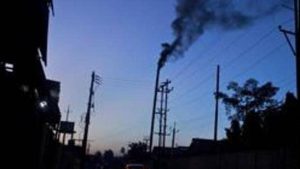Amnesty Scheme For Infrastructure And Industrial Projects:

The union environment ministry has put together an amnesty scheme for infrastructure and industrial projects that have violated environmental clearance norms.
- The SOP is a result of orders from the National Green Tribunal, which earlier this year directed the ministry to put in place penalties and an SOP for green violations.
Standard operating procedure (SOP) laid out by the ministry:
- As per the new SOPs, projects that have expanded in capacity without requisite permissions will have to revert to older production limits until reassessed.
- If prior EC was not required for the project but is now required under updated norms, then the project will have to restrict its production to the extent to which prior EC was not required till appraised again.
- Only projects which are in complete violation of environmental norms and were never eligible for grant of environmental clearance shall be demolished or closed.
- Projects that violate norms, but are “permissible”, will be assessed for the damage caused and a remediation plan developed.
- These projects will have to submit a bank guarantee equivalent to the remediation plan and a natural and community resource augmentation plan to the central or state pollution control boards.
- The memorandum gives powers to government agencies such as the CPCB, state pollution control boards and state environment impact assessment authorities to identify such violations and take penal action against them.
Provisions in the draft EIA notification 2020:
- The draft notification includes an exemption of several large industries and projects from public consultation — as part of the environment impact assessment process — such as chemical manufacturing and petroleum products; building, construction and area development; inland waterways and expansion or widening of national highways.
- The draft does not provide clarification regarding the criteria for categorizing projects ‘strategic’ by the Central Government and hence could be open to excessively broad interpretations.
- There is a clause on “post-facto clearance”. These are for projects that have started without obtaining the required environmental clearances or permissions.
- It shortens the period of public consultation hearings to a maximum of 40 days.
- It reduces from 30 to 20 days the time provided for the public to submit their responses during a public hearing for any application seeking environmental clearance.
- The increased validity of the environment clearances for mining projects (50 years versus 30 years currently) and river valley projects (15 years versus 10 years currently) raises the risk of irreversible environmental, social and health consequences on account of the project remaining unnoticed for long.




